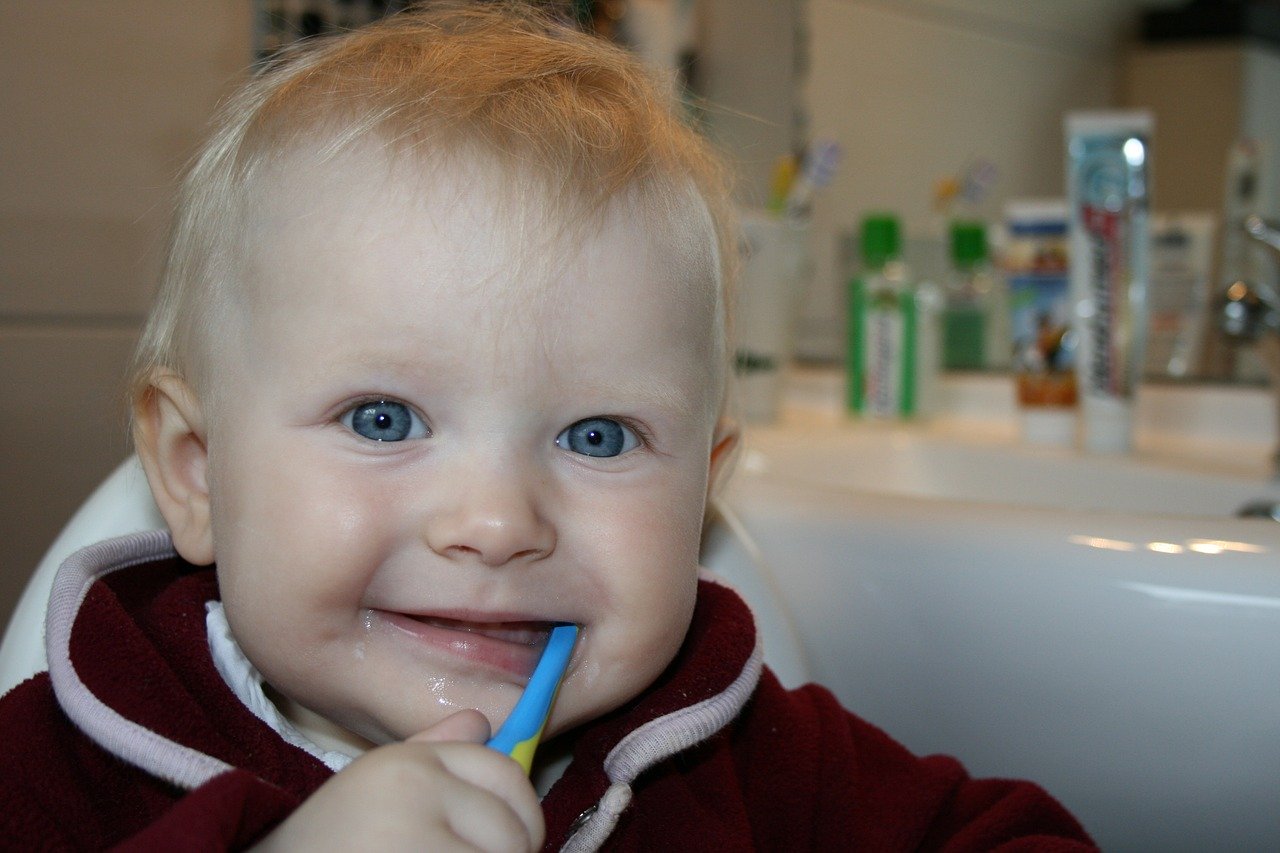How Do I Know If My Baby Is Teething?
Babies cry. Sometimes there seems to be no reason, and sometimes it is more obvious. Everyone is aware of the fact that babies are loud creatures – but how do you know if said crying is caused by teething? As a new parent, having an excuse for your baby’s incessant crying can be a comforting thing (despite the fact that the crying can be, well, incessant!)
To know that the crying is caused by teething can be a comfort – at least it is something you can try to fix, and you know that your little one is not actually poorly.
How do I know if my baby is teething?
Each child will show different signs when teething, but there are a few tell tale signs:
- Babies, especially the younger ones, can dribble a lot when they are teething. This can cause a facial rash, which is painful as well at the teething, and is a give away sign.
- Gnawing and chewing on things. If your baby is more than usually keen on putting things in their mouths, or biting on their hands, then you might suspect teeth coming through.
- A tooth visible beneath the gum line. If you can get a good look at your little one’s gums, you may see redness, swelling, or even a white line which is the tooth starting to poke through.
- Rubbing the ear. Teething pain can cause earache in children, so a child that is showing signs of having a painful ear may actually have painful teeth.
- A flushed cheek. Especially if a cheek is bright red on one side, this can be a teething sign.
Unusual Signs of teething
Usually, teething occurs between 6 months and two years of age – some children start earlier, while some others take even longer to get all their teeth in. Often it is easy to know when your baby is teething, but sometimes the symptoms can be more confusing.
- Having a fever is a common sign of teeth coming through, and although doctors will tell you that this is not an actual sign of teething, most parents will say that this is a sign. It is possible that the immune system is lowered around teething time, so your baby’s fever may not actually be caused by teeth coming through, but it is definitely a sign to watch out for.
- Listen out for a husky voice. Again, this is not a symptom that a doctor will agree is caused by teething, but it is surprisingly common to notice your baby starting to sound a little like a country and western singer when their teeth are coming through.
- If your baby looks like they are coming down with a cold, it may turn out that they actually have teeth coming through.
- Keep an eye out for a rash on your baby, especially in the face or backside – this is caused by the excessive drooling and extra possibility of diarrhoea during teething time.
- Refusing to eat is another symptom of teeth; it can hurt the gums to have extra pressure on them, so your baby might not want to eat if they are on solids, and some even find it painful to nurse.
How long does teething go on for?

Teething, when you and your baby are going through it, can feel like it’s interminable and will never end! In reality though, it shouldn’t take too long for those little chompers to push through.
On average, one of the smaller teeth should be showing itself through the gum in the space of 3-5 days – though that’s just for the first part to break the gum, and a slight discomfort may persist for a little longer.
It shouldn’t be as bad as before it has actually popped up though. Molars, the bane of parents’ lives, can take a little longer, as they are much bigger teeth. Just comfort yourself with the fact that there are only four of them!
How to help a baby through teething
It’s awful to watch your little one feel pain and not be able to help them. Teething pain is really nasty for lots of babies and toddlers, especially as they have not really yet experienced any pain, so have no way of dealing with it other than howling and not sleeping!
Luckily, there are a few things / pain relievers that you can do to help your little one through this painful time:
- Pain killers. Giving your baby the correct dosage of a child friendly Paracetamol or Ibuprofen can really help them deal with the pain of the teeth pushing through, and can give you a few hours more rest.
- Teething powders. These innocuous looking powders are actually great for teething babies. Many of them contain herbs or homeopathy, so they are safe for little babies.
- Teething gel. A topical gel that is applied to your baby’s gums can help take the pain away temporarily, enough to see them through a few more hours – that’s a few hours closer to the teeth coming through!
- Cold cloths. Wetting a flannel and putting it in the freezer for a few hours is a great solution to teething pain – babies can gnaw on them and the cold will bring some relief.
- Teethers. These clever little rings, designed for biting on, can not only help relieve some of the pain of teething, but can also help to encourage the teeth to come through the gums more quickly.
Final words
Teething can be an awful time for both parents and children. How do I know if my baby is teething? When they turn into the Devil incarnate, and nothing you do seems to help them feel better, if they haven’t yet got all their teeth then it’s pretty likely a tooth is the culprit!





